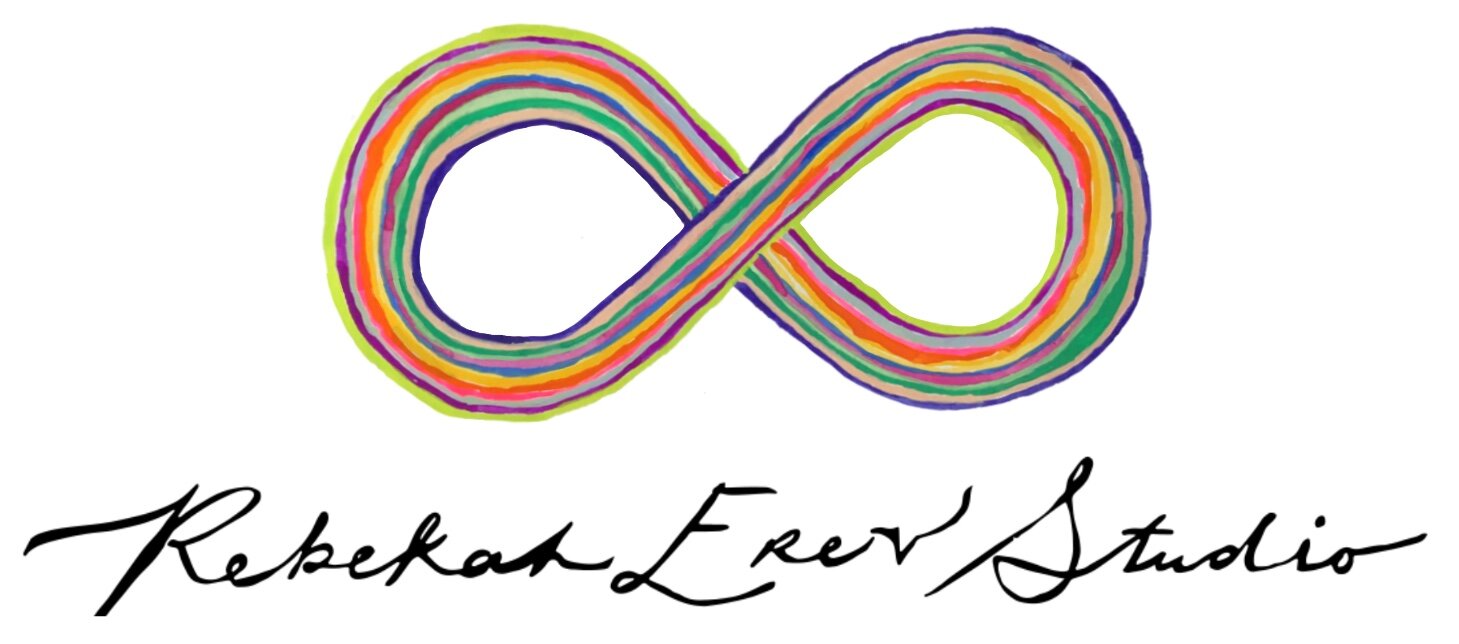A bright image that says: torah, Trees & Time in neon colors (purple, magenta and aqua) dominating the square.. There is a full moon Emoji with a face in the left upper corner and the same of a dark moon in the upper right corner, there are stars in the background, two palm tree emojis in each bottom corner and a painted abstract line in magenta, light blue, beige, green and red that runs like a bent halo on either sides of the words. The background is midnight blue.
Torah, Trees & Time
Self-paced, online course.
This course is inspired by the late winter season of grounding into our roots, resting deep and dreaming. Our living ancestors, the trees, know these radical practices well. In honor of Tu B’Shvat, the birthday of the trees, explore teachings from our beloved tree family.
Ancient Hebrew people were tree worshippers. This course covers Pomegranate, Cedar, Olive, Cinnamon, Almond and Myrtle and their associations with the first six Hebrew months of the year as well as ancient and modern ritual practices. Connections to Torah, folklore, midrash (interpretation of text) and intuitive processes all guide the course to deepen our relationship with trees. We explore medicinal properties and uses of these trees and participate in creative process, ritual, meditation, discussion and lecture. The trees guide as we slow ourselves down enough to receive their healing.
There will be opportunities to create art inspired by these trees, write stories and receive instructions from them.
Course includes:
2 sessions, 2.5 hours each
PDF about course content
All are welcome regardless of religious or spiritual background!
No knowledge of Jewish practice or Hebrew necessary
All sessions ASL interpreted with automated closed captioning (please contact me if you have other access needs)
All sessions recorded and available for 60 days
Workshop includes: lecture, ritual and altar suggestions and practice, optional break out partner sharing, guided meditation, a pdf with more information on each tree and creative activities.
Questions and Answers
Does the course use the tree associations from the Verdant Dreams of Olam haBa planner?
Yes! But you don’t need to have the planner or any knowledge of the associations before this course. If you’d like to check them out, the planners are now on sale and we still have some available.
What materials do we need for the course?
Please have a journal, something to write with, a candle and a comfortable place to be (or anything else that will put you in a restful, relaxed place).
Optional items to use in class include:
cedar (dried and/or fresh)
some olives and olive oil
pomegranate (dried or fresh, juice works well too)
a few almonds
cinnamon powder or a stick
a leaf of myrtle, or ground herb (you can also bring a bay leaf or another roundish leaved evergreen)
Are there notes for the course available?
The course includes a PDF with information about each of the trees covered in the course.
Do I need to know anything about Judaism to take this course? What if I’m not Jewish but curious?
All are welcome to join this class regardless of background. One of my guiding principles is to make my teachings accessible. I’m pretty good at defining words or phrases, or providing definitions but if I miss one, please ask. There is always someone else who will have the same question.





